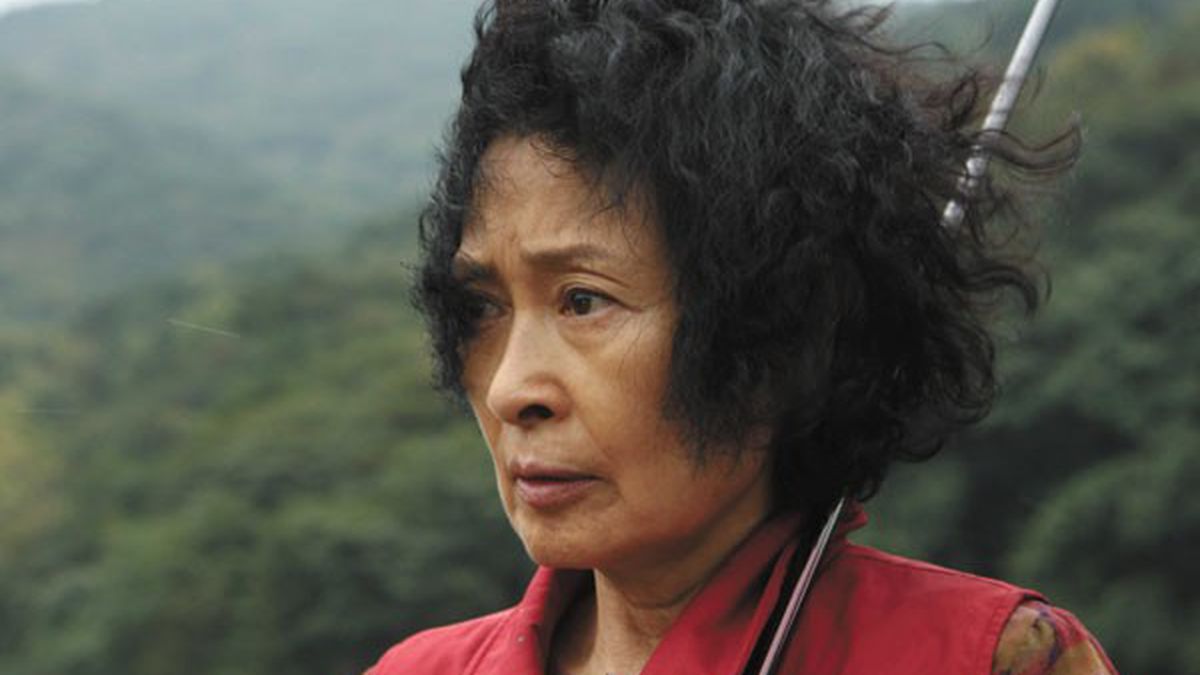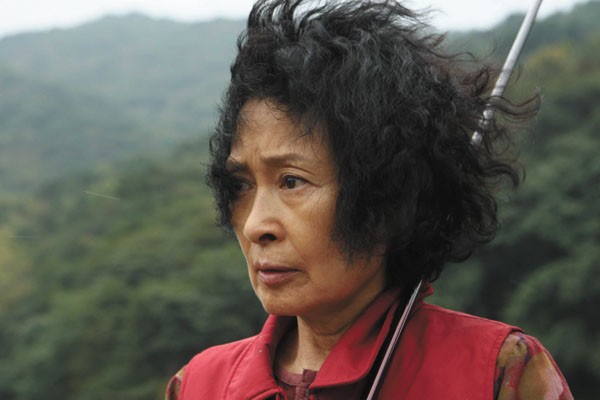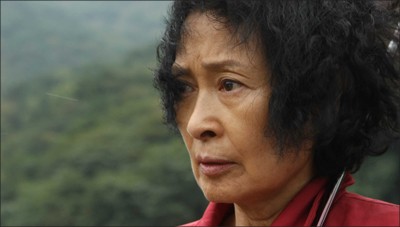The current vogue for South Korean films is grounded in considerable talent. Although most contemporary American audiences’ first Korean encounters were of the jump-out-and-go-boo variety, there’s much more to it than K-horror. Filmmakers as diverse as Park Chan-wook (Thirst, Old Boy), Hong Sang-soo (Like You Know It All), Kim Ji-woon (A Tale of Two Sisters), and Yim Pil-sung (Hansel and Gretel) have demonstrated not only the cinematographic eye for startling detail we’ve come to expect from Korea, but also an increasingly sophisticated sense of story.
Bong Joon-ho, director of the newly imported detective story Mother, is a case in point. From the evidence of his last few efforts — the 2006 giant-monster thriller The Host, and “Shaking Tokyo,” Bong’s twisted character study from the compilation film Tokyo! — he could well be the poster boy for the Seoul film industry’s coming-of-age. Mother (Korean title: Madeo) is a further advance along the line of the eccentric “Shaking Tokyo,” an enigma inside a riddle wrapped in a deceptively old-fashioned tale of murder. It’s Bong’s best film yet, an intriguingly sour art-house treat, and one of the most rewarding films of the new year.
We begin wondering about Yoon Do-joon (played by actor Bin Won) as soon as we meet him on the main drag of his little town, essentially playing in traffic. From out of nowhere, a Mercedes appears and clips Do-joon, then drives on, with him and his buddies in hot pursuit. They catch up with the culprits playing golf at a nearby country club and give the unrepentant men a beating, but we can’t help noticing there’s something a little off about Do-joon. He’s developmentally challenged — that’s one reason why his mother, otherwise unnamed, spends so much time tending to him.
Mother (Kim Hye-ja) is a case for further study in her own right. When she’s not busy running the local herbalist shop and administering acupuncture treatments to patients — illegally, it turns out — Mother keeps a close eye on her 27-year-old boy. Perhaps a tad too close. We observe her feeding him soup while he’s peeing, both of them unconcerned, as if it happens every day, and mother and son evidently share the same bed. It isn’t enough that Mother dotes on her unruly man-child and operates on her customers without a license — she has a sharp tongue and a combative temper, traits that make her an unpopular figure in the small town.
She’s also one determined mother. One night, Do-joon goes out to a nearby restaurant to make a nuisance of himself by getting drunk, and on his way home has a brief exchange of words with a young woman, who actively avoids his come-on. The two part ways, and when the young woman’s dead body is discovered the next morning, suggestively draped over a balcony, Do-joon is hustled into the police station and charged with murder. He goes along with a policeman’s suggestion to sign a confession, and is immediately jailed to await trial.
Mother pretty much turns the village upside down in her crude but persistent efforts to defend her son. She gets into a brawl with the victim’s family, consults the local shyster lawyer, and shadows the town tough guy, Jin-tae (Ku Jin), who promptly shakes down the old lady for the equivalent of $5,000 for his investigative skills. We learn about Do-joon, his pals, the victim, the old junk man who lives outside town, and Mother herself, and it gets weirder as it goes on.
Bong’s story — he wrote it for the screen with Park Eun-kyo — doesn’t say much for either forensic-evidence gathering or criminal-law procedure in South Korea. The police essentially don’t care if Do-joon actually killed the victim — in the time-honored manner of small-town cops everywhere, they’ve made up their minds and don’t want to be bothered with it any further. Do-joon is the perfect fall guy. A sickening uneasiness settles into the scenario, as in a despairing film noir. Like a well thought-out combination of Claude Chabrol and Shohei Imamura, Mother delights in peeling back the layers of polite behavior and displaying the elemental, brutal side of life, in the social fabric as well as in the characters. Mother’s low cunning is tinged with a touchingly protective forbearance toward her son, as if the more monstrous his supposed crimes, the stronger her resolve to fight for him.
Major kudos to veteran actor Kim as Mother, trudging the village in search of clues to exonerate her helpless son while simultaneously practicing guile and deception. Bin’s role-playing as Do-joon is also a nasty piece of work, as we learn that even poor unfortunates can harbor a deep streak of malevolence. Filmmaker Bong’s plotting and pacing are superb. The story moves forward in short, halting steps until it’s ready to leap up and scare the hell out of us — not with ghosts or creatures but with unpredictable human nature.
André Téchiné’s The Girl on the Train is also a bit of a crime caper, but crimes of the heart — indeed, defects of personality — are what veteran filmmaker Téchiné is about here, with spotty success.
The screenplay, by the director with Odile Barski and Jean-Marie Besset, presents us with a feast of characters: the title young woman, Jeanne (Émilie Dequenne), a spoiled Parisian who apparently floats around on inline skates for a living; her mother Louise (Catherine Deneuve), a daycare center operator; family friend and Jewish activist attorney Samuel Bleistein (Michel Blanc); Jeanne’s new boyfriend Franck (Nicolas Duvauchelle), a wrestler with shady acquaintances; Bleistein’s son Alex (Mathieu Demy, son of filmmakers Jacques Demy and Agnès Varda); Alex’s ex-wife Judith (Israeli actress Ronit Elkabetz); and Judith’s son Nathan (Jérémie Quaegebeur), who is about to be bar-mitzvah’d.
But the feast fails to satisfy. Blame it on the writing. Against a background of TV news reports of anti-Semitic attacks, Jeanne cooks up a preposterous but nonetheless hot-button story of being assaulted on board a Métro train by youths who believed her to be Jewish. She does it to deflect attention away from her own problems, but the resulting heat does more or less the same damage to Téchiné’s film as it does to the relationships between Jeanne and her mother, and Jeanne and everyone else.
Ms. Dequenne is fascinating as the tormented center of attention, but not quite fascinating enough. Louise, Bleistein, Franck the maladroit outsider, and even the kid Nathan are meatier dramatic subjects, whether as hooks on which to hang a scant social message (the false assault is derided as “any excuse to accuse inner-city youths”) or for their own sakes. They fall by the wayside, and so does The Girl on the Train.














